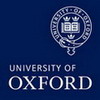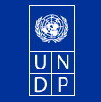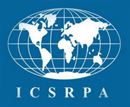 |
The University of Oxford located in the city of Oxford, England, is the oldest university in the English-speaking world. It is also regarded as one of the world’s leading academic institutions. The university traces its roots back to at least the end of the 11th century, although the exact date of foundation remains unclear. After a dispute between students and townsfolk broke out in 1209, some of the academics at Oxford fled north-east to the town of Cambridge, where the University of Cambridge was founded. The two universities have since had a long history of competition with each other which is called Oxbridge rivalry. |
 |
The University of Cambridge located in Cambridge, England, is the second-oldest university in the English-speaking world. It is regarded as one of the world’s premier academic institutions. The universities of Oxford and Cambridge are often jointly referred to as Oxbridge. In addition to cultural and practical associations as a historic part of English society, the two universities also have a long history of rivalry with each other. Academically, Cambridge is consistently ranked in the world’s top 5 universities. It has traditionally been an academic institution of choice of the Royal Family (King Edward VII, King George VI, Prince Henry of Gloucester, Prince William of Gloucester and Edinburgh and Prince Charles were all undergraduates) and has produced 82 Nobel Laureates to date. |
| |
The Economic Competitiveness Group (ECG) is a group of professional economists, planners, and management consultants dedicated to helping clients achieve sustainable economic competitiveness using an innovative, cluster-based methodology, a proven collaborative implementation process, and a host of related analytical and institution-building services. |
 |
The Norwegian Institute of International Affairs (NUPI) is devoted to research and information on international relations, politics and economics, with a focus on areas of central relevance to Norwegian foreign policy. The institute undertakes long-term basic research as well as short-term applied research and advisory services, with basic research as a prerequisite for good applied research. |
 |
The German Development Cooperation Agency (GTZ) is an international cooperation enterprise for sustainable development with worldwide operations. GTZ promotes complex reforms and change processes and its corporate objective is to improve people’s living conditions on a sustainable basis. |
 |
Davis Center at Harvard University, which promotes high standards of research and teaching, and fosters communication among scholars through meetings and publications. The Society works to facilitate interaction among senior, established scholars, junior scholars, graduate students, and independent scholars in North America and throughout the world. |
 |
The Institute for Strategy and Competitiveness led by Michael E. Porter, Bishop William Lawrence University Professor, studies competition and its implications for company strategy; the competitiveness of nations, regions and cities; and solutions to social problems. Based at Harvard Business School, the Institute is dedicated to extending the research pioneered by Professor Porter and disseminating it to scholars and practitioners on a global basis. |
 |
Chatham House, home of the Royal Institute of International Affairs, is Europe’s leading foreign policy think-tank and a world-leading institute for the debate and analysis of international issues |
 |
East-West Institute (EWI) based in New York, USA, promotes building of international network of leaders working toward peace, prosperity and improved cooperation through an exchange of ideas and a respect for cultural diversity. |
 |
The Salzburg Global Seminar convenes imaginative thinkers from different cultures and institutions, organizes problem-focused initiatives, supports leadership development, and engages opinion-makers through active communication networks, all in partnership with leading institutions from around the world and across different sectors of society. |
 |
The Global Development Network (GDN) is a worldwide network of research and policy institutes working to provide a fresh and relevant perspective to the development challenges of our time. What makes its initiative different is that it aims to generate the research at the local level in developing and transition countries. |
 |
The United Nations Development Programme in Georgia UNDP is the UN’s global development network to help people meet their development needs and build a better life. UNDP is present in 166 countries, working as a trusted partner with governments, civil society and the private sector to help them build their own solutions to global and national development challenges. UNDP established its presence in Georgia in 1993.
|
 |
Community of Science (COS) is the leading international resource for medical, health related, and scientific research funding information and opportunities. |
 |
The Konrad-Adenauer-Stiftung offers political education, conducts scientific fact-finding research for political projects, grants scholarships to gifted individuals, researches the history of Christian Democracy, and supports and encourages European unification, international understanding, and development-policy cooperation. |
 |
Open Society Georgia Foundation is a member of a network of foundations established by Mr. George Soros. Foundation serves out grants according to its priority to non-governmental, non-commercial organizations and individuals. The specter of the foundation activities is very wide. Starting with studying and preserving the Georgian national cultural heritage, finishing with introduction of new publishing technologies.
|
| |
The Maastricht Graduate School of Governance was founded in September 2004 at Maastricht University. The mission of the School is to train specialists who combine a high level of academic scholarship with leadership, in order to strengthen democratic governance in domestic and international organizations. |
Home » Partners



